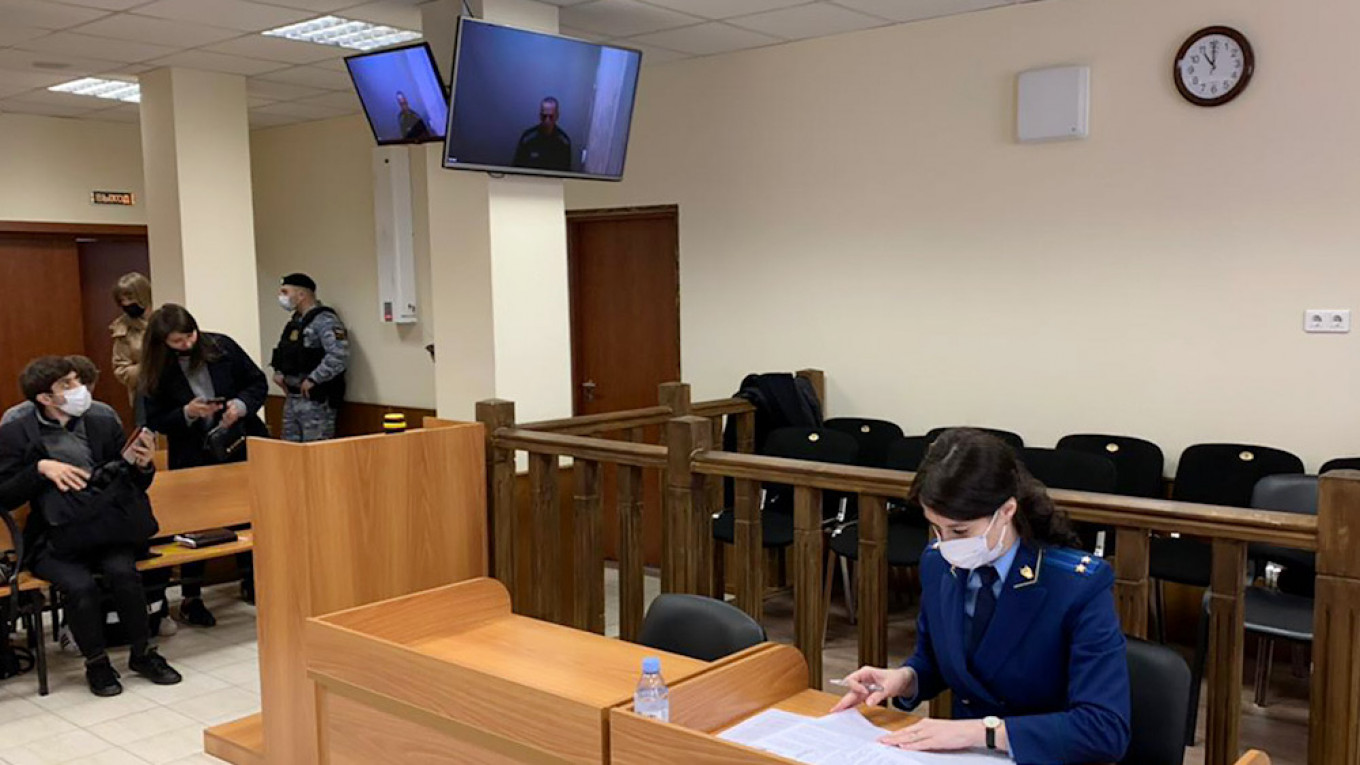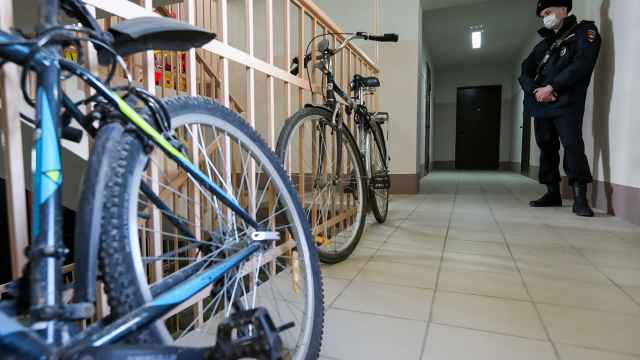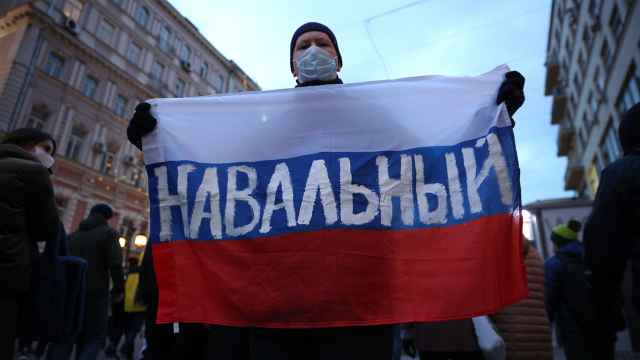Russian opposition leader Alexei Navalny appeared in court via video link Wednesday for the start of hearings into complaints against conditions at his penal colony.
Navalny, 44, was jailed in February and is serving two-and-a-half years at a facility outside Moscow on old fraud charges he says are politically motivated.
His detention, which came months after he survived a near-fatal poisoning attack, was met with sharp condemnation from Western countries which slapped fresh sanctions on the Kremlin in response.
The complaints heard Wednesday center around Navalny's claims that prison authorities are refusing to provide him with books sent to him by relatives, including the Quran, and that they are censoring newspapers he receives.
"It's a bizarre situation," Navalny said according to an AFP journalist in the court in Petushki, 125 kilometers east of Moscow.
"I would like to be given the books that were sent to me," he added.
Navalny was shown in the Petushki courtroom wearing dark prison attire, with hunched shoulders and was less combative Wednesday than in previous hearing in the lead up to his jailing in February.
Last month he ended a 24-day hunger strike initiated to protest a lack of medical attention at what is considered to be one of Russia's most harsh prison facilities.
Navalny said he had only been able to obtain a copy of the Quran after he was transferred in April to a prison hospital, where he had received medical attention after announcing the hunger strike.
He also complained in court Wednesday that newspapers he had received in prison appeared to have had articles removed from them with scissors.
Since Navalny's arrest in February, authorities have moved to dismantle his nationwide political offices and anti-corruption organization by branding them extremist or terror groups.
The move has been seen as part of efforts to shield the increasingly unpopular ruling United Russia party from real competition ahead of parliamentary elections in September.
A Message from The Moscow Times:
Dear readers,
We are facing unprecedented challenges. Russia's Prosecutor General's Office has designated The Moscow Times as an "undesirable" organization, criminalizing our work and putting our staff at risk of prosecution. This follows our earlier unjust labeling as a "foreign agent."
These actions are direct attempts to silence independent journalism in Russia. The authorities claim our work "discredits the decisions of the Russian leadership." We see things differently: we strive to provide accurate, unbiased reporting on Russia.
We, the journalists of The Moscow Times, refuse to be silenced. But to continue our work, we need your help.
Your support, no matter how small, makes a world of difference. If you can, please support us monthly starting from just $2. It's quick to set up, and every contribution makes a significant impact.
By supporting The Moscow Times, you're defending open, independent journalism in the face of repression. Thank you for standing with us.
Remind me later.






